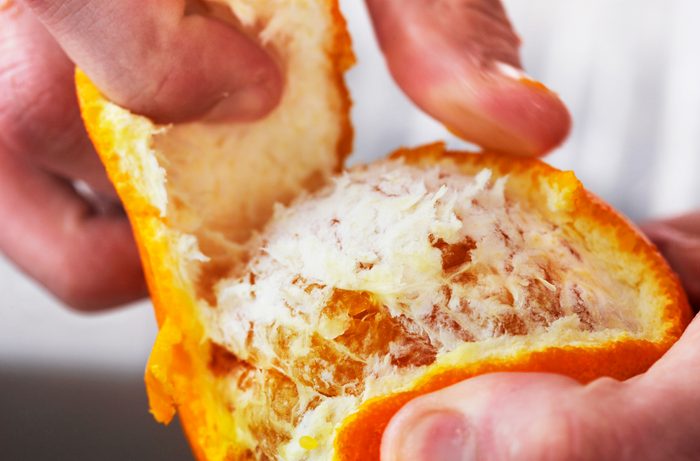
In the first week of July, one scientist told CNN that global temperatures were the highest they’d been in “at least 100,000 years.” Enjoying summer on a hike, a bike, or even lounging on a beach chair with a good book, it’s essential to stay hydrated. “Being hydrated decreases the risk of injury and helps keep joints lubricated, while dehydration can make joints more susceptible to injuries,” says registered dietitian Yasi Ansari, MS, RDN, CSSD who is also a national spokesperson for the Academy of Nutrition and Dietetics.
The cool thing—literally cool? You can pipe some extra hydration into your system by picking some optimally hydrating foods. “About one liter of water per day comes from drinking water, and another liter from foods,” says registered dietitian Theresa Gentile, MS, RDN, CDN who is also National Spokesperson for the Academy of Nutrition and Dietetics. To keep your physiology humming, “make sure to include plenty of fruits and vegetables in your diet, especially in the hot weather,” Gentile says.
To help you stay hydrated during the hot summer months, Ansari and Gentile list the best foods for hydration.
The 3 Best Hydrating Beverages That Aren’t Water, from a Certified Sports Dietitian
The best foods for hydration
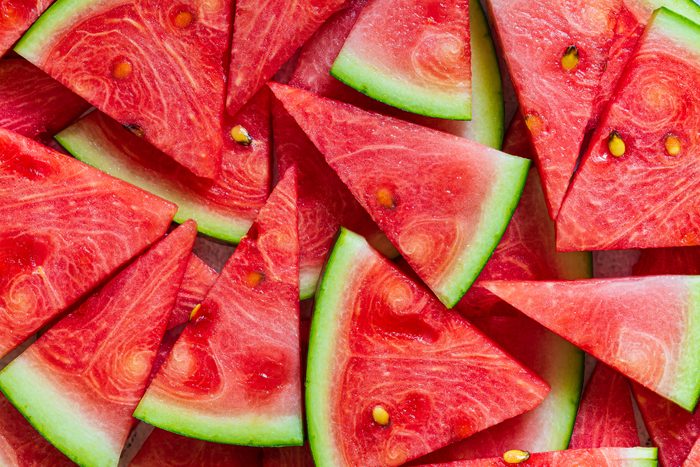
1. Watermelon
Watermelon is one of nature’s most loving summertime gifts, as it’s one of the best foods for hydration. Gentile says generally all fruit and vegetables have a high water content, but “watermelon, honeydew and cantaloupe have the highest percentage of water per weight of fruit,” Gentile says. It’s also pleasing to the palate, and to the eye on a picnic spread.
Can Dogs Eat Watermelon? Here’s the Juicy Verdict, from Veterinarians
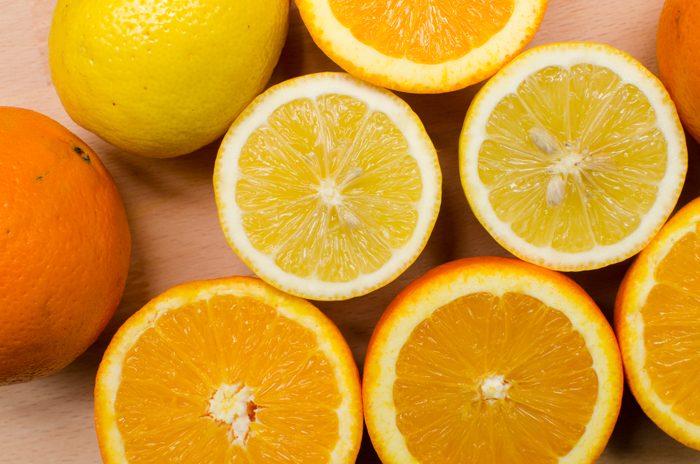
2. Citrus
Citrus fruits like oranges, grapefruit and tangerines are very refreshing, but also very abundant with water. They’re also easy to pack for a day of adventures or an easy snack on the beach…plus fun to splash into water for a little flavor as you sip.
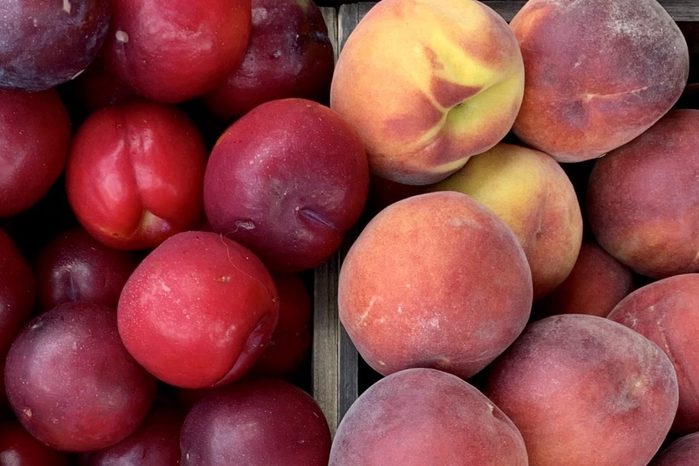
3. Peaches & plums
Peaches and plums are both in season starting in June in much of the country, and they’re also some of the most hydrating fruits. The Cleveland Clinic says peaches in particular pack specific summertime benefits, like fiber that supports digestion (which can be especially helpful when you’re traveling) and antioxidants that fight inflammation…which may help prevent long-term issues like heart disease and dementia, but also could possibly aid short-term conditions like overexposure to the sun.
5 Diet Changes You Should Make This Summer, from a Nutritionist
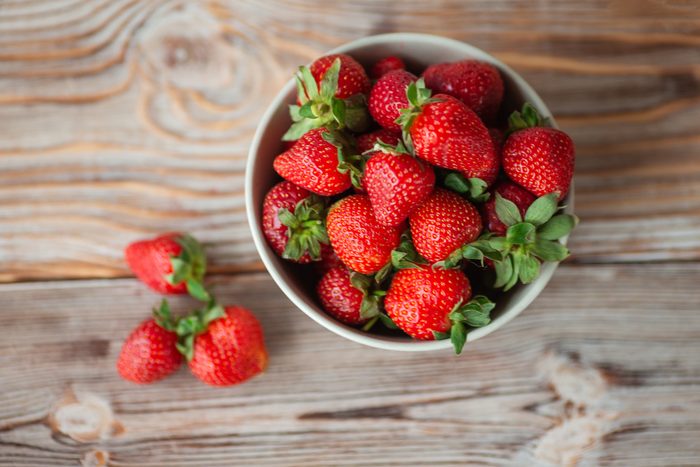
4. Strawberries
Strawberry-picking is a fun summer tradition, and eating berries straight off the vine is as fresh as it gets! (Er, maybe give them a rinse first.)
Ansari says that according to the USDA, strawberries contain about 75% water. She also says frozen strawberries are great for periods when berries are out of season and cost more at the grocery store after being imported from somewhere far away (which usually makes it more likely they’ve been preserved with chemicals).
Berries can also help you stay hydrated simply by being a delicious infusion to drop into your water glass!
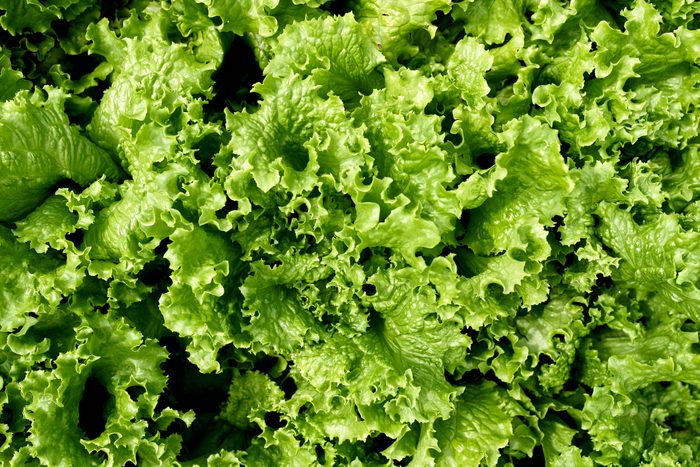
5. Lettuce
A cold and crispy summer salad hits the spot when it’s hot, and lettuce is one of several cruciferous veggies that contain about 75% water. Cabbage is another…which might make cole slaw a perfect summer side.
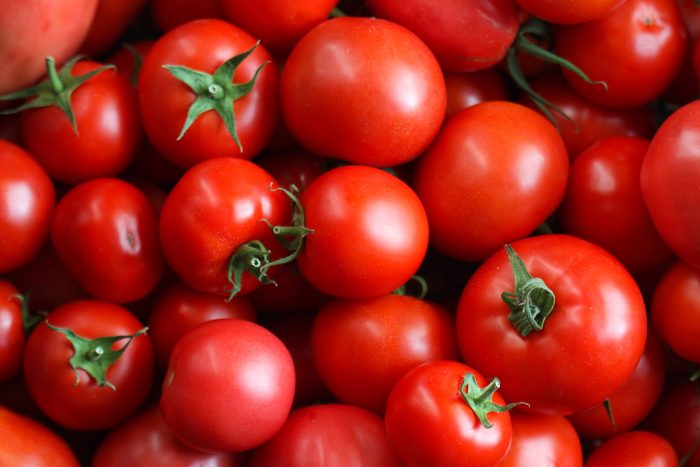
6. Tomatoes
A fresh red tomato is one of the most versatile foods—think in salads, pasta dishes, as a burger topping or even a fresh tomato sandwich with a little mayonnaise.
Gentile lists tomatoes as one of the top hydrating vegetables. They’re also very high in vitamin C, which can keep your immune system fortified if you’re doing lots of summer socializing.
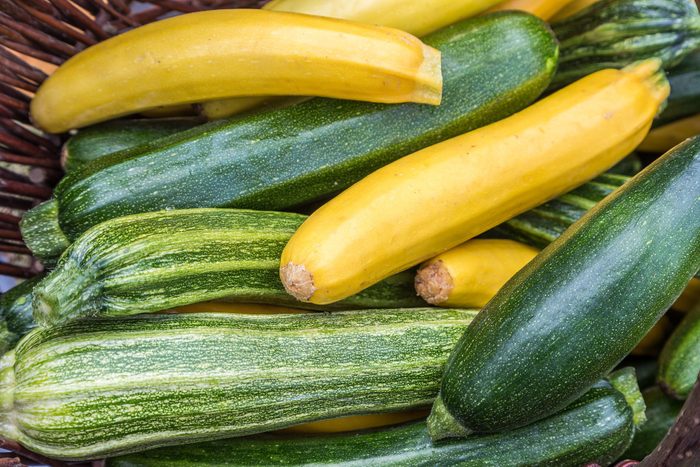
7. Summer Squash
Summer squash is a delicious addition to your meals as another top hydrating vegetable. Summer squashes include zucchini, yellow zucchini, yellow squash and pattypan squash. You can grill them as a side to any of your summer dishes, or add them to eggs for a low-effort, high-protein summer breakfast, lunch or dinner.
Smart ways to incorporate fruits and vegetables to stay hydrated:
Gentile shared some fun ways to include fruits and vegetables in your summer meals and snacks for extra hydration:
- Freeze grapes and berries for a cold, slushy treat (The Healthy @Reader’s Digest’s Medical Review Board co-chair Latoya Julce RN, BSN says this is her favorite healthy summer treat!)
- Blend up frozen strawberries, bananas, or peaches for a healthy sorbet with no added sugar
- Freeze bananas dipped in chocolate and chopped nuts for a healthy treat
- Grill peaches for dessert
- Include vegetables in cold pasta salads
- Always include vegetables when grilling
For more health and wellness trends, get The Healthy @Reader’s Digest newsletter and follow The Healthy on Facebook, Instagram, and Twitter. Keep reading:

